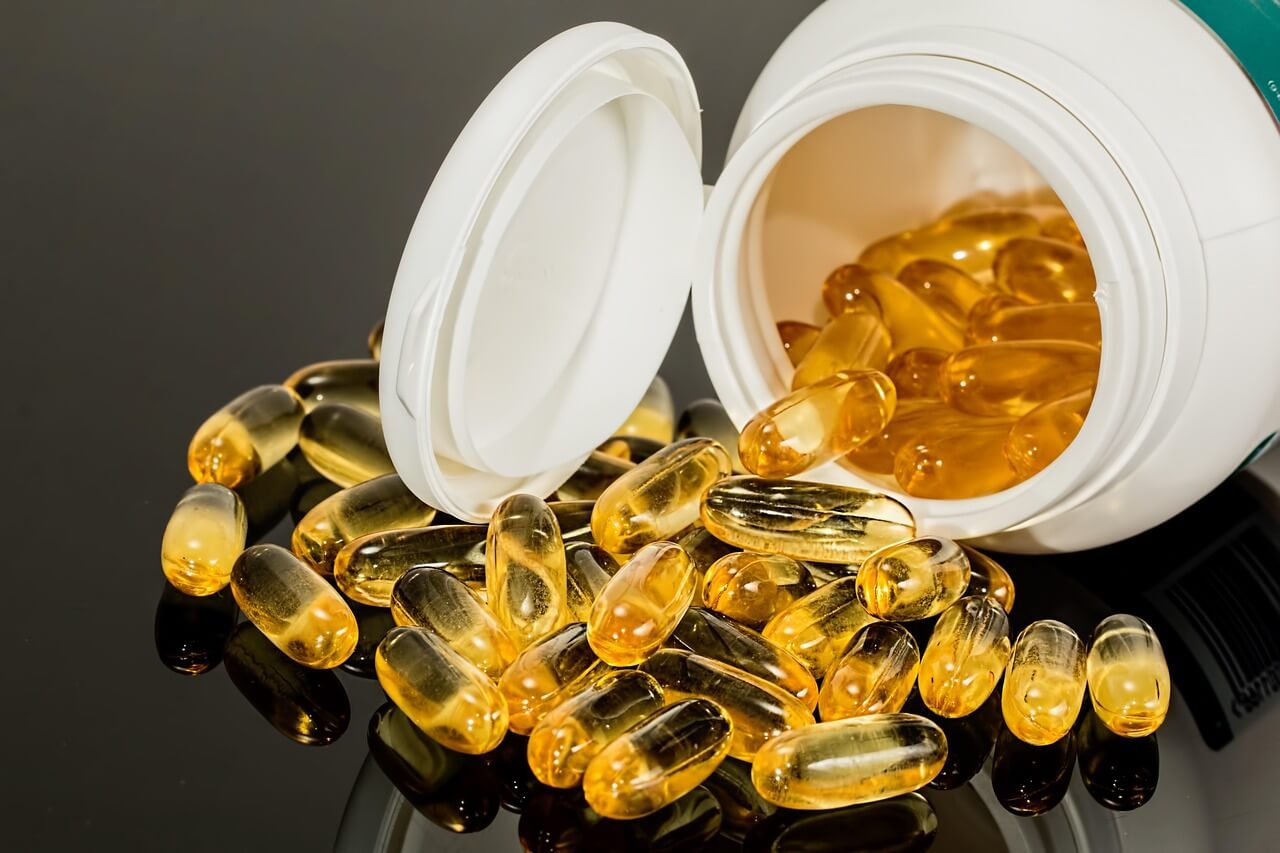This article is an overview of a study done on the “Effect of packaging and encapsulation on the oxidative and sensory stability of omega-3 supplements,” published in the Food Science & Nutrition Journal.
Original Research Source: Effect of packaging and encapsulation on the oxidative and sensory stability of omega-3 supplements – Food Science & Nutrition (2023)
Overview
Omega-3 supplements, rich in eicosapentaenoic acid (EPA) and docosahexaenoic acid (DHA), are vulnerable to oxidation, which compromises nutritional value and leads to off-putting flavors and odors. This article reviews the effects of packaging and encapsulation on the stability and quality of these products, comparing syrup, capsule, and chewable forms.
Key Findings from the Research – Oxidative Stability of Omega-3
Oxidative Stability by Product Form
- Capsules showed the highest oxidative stability.
- Syrups had peroxide values (PV) as high as 44.6 meq/kg oil, far above the GOED safety limit of 5 meq/kg.
- Capsules peaked at 7.62 meq/kg, and chewables fell in between.
Sensory Quality Trends
- Syrups degraded faster in taste and smell.
- Capsules and individually wrapped chewables using ConCordix technology maintained superior sensory quality over time.
Advantages of Encapsulation
- Encapsulation with materials like phospholipids or chitosan shields oils from oxygen and light.
- Improves oxidative resistance and enhances absorption.
- Controls release during digestion and masks unpleasant flavors.
Storage and Consumer Use
- Real-world storage conditions (e.g., room temperature, inconsistent use) accelerate degradation.
- Product quality varied even across the same brands in different retail environments.
Testing Limitations
- Flavored products (e.g., citrus oils) interfered with p-anisidine testing, affecting secondary oxidation assessments.
Conclusion of the research source:
For consumers and manufacturers aiming to preserve omega-3 supplement quality, encapsulation and appropriate packaging are essential. Capsules and individually wrapped chewables outperform syrups in terms of both stability and sensory acceptability. These findings underscore the need for regulatory and production standards to ensure consistent product quality across markets.

MVS Pharma GmbH: Applying Scientific Insights to Product Development of MVS-Omega 3
The study “Effect of Packaging and Encapsulation on the Oxidative and Sensory Stability of Omega-3 Supplements” by Yenipazar and Şahin-Yeşilçubuk (2023) aligns closely with MVS Pharma GmbH’s research and product strategy. It confirms the scientific principles that have guided the development of our MVS-Omega 3 supplement.
As a pharmaceutical-grade nutraceutical company, MVS Pharma prioritizes oxidative stability, bioavailability, and purity. The study validates our decision to use capsule formats, which outperform syrup and chewable alternatives in protecting EPA and DHA against oxidation. Our internal stability tests support these findings: peroxide and anisidine levels remain well within safe limits throughout shelf life.
Recognizing oxidation as a key degradation pathway, we have implemented robust antioxidant strategies from the earliest stages of product development. Each MVS-Omega 3 capsule is packaged to protect its integrity from light and oxygen, reducing the formation of aldehydes and hydroperoxides that negatively affect both health and taste.
The study also highlights bioavailability challenges due to the lipophilic nature of omega-3 fatty acids. MVS Pharma addresses this by sourcing ultra-purified fish oils through advanced molecular distillation, ensuring contaminant-free content. Our encapsulation process enhances disintegration and absorption, making EPA and DHA more bioavailable.
In line with the research, our audits of market-available omega-3 products revealed inconsistent quality across suppliers. We counter this through stringent supplier vetting and batch testing to guarantee consistency and potency.
Our sensory analysis also mirrors the study’s outcomes—well-encapsulated omega-3 supplements minimize fishy odor and aftertaste, which directly improves consumer experience and adherence.
Conclusion of MVS-Pharma GmbH
The research by Yenipazar and Şahin-Yeşilçubuk has provided a compelling evidence base that confirms the scientific rationale behind our formulation choices at MVS Pharma GmbH. By focusing on oxidative resistance, enhancing bioavailability, and ensuring contaminant-free purity, we have developed MVS-Omega 3 capsules that meet the highest standards in stability, safety, and efficacy. Our work continues to build upon this foundation through ongoing research collaborations and literature evaluation.
References
- Yenipazar, H., & Şahin-Yeşilçubuk, N. (2023). Effect of packaging and encapsulation on the oxidative and sensory stability of omega-3 supplements. Food Science & Nutrition, 11, 1426–1440. https://doi.org/10.1002/fsn3.3182
- Ismail, A., et al. (2016). Oxidation and sensory characteristics of omega-3 rich oils: A review. Food Chemistry, 213, 663–673.
- De Boer, A., et al. (2018). Guidelines for the assessment of oxidative quality of omega-3 supplements. Global Organization for EPA and DHA Omega-3s (GOED).
- Chang, C., & Nickerson, M.T. (2018). Encapsulation of fish oils using protein-based systems: A review. Food Hydrocolloids, 80, 52–60.


